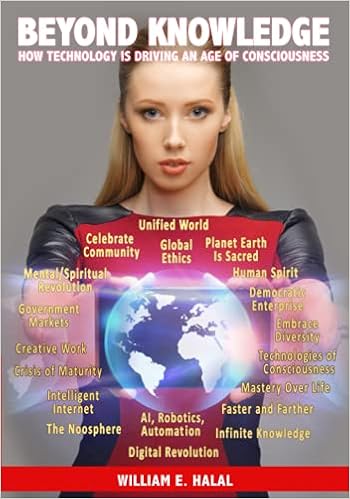Global Consciousness

The concept of a "Global Consciousness" has captivated thinkers and researchers for decades, and its exploration has led to fascinating insights into the interconnectedness of humanity and the potential for collective awareness. In a world increasingly defined by global challenges and opportunities, understanding and fostering this consciousness has become more crucial than ever. This article delves into the multifaceted nature of Global Consciousness, exploring its historical development, scientific underpinnings, and its potential impact on our shared future.
Historical Context and Early Ideas of Global Consciousness

The notion of a collective, global consciousness has its roots in ancient philosophical traditions. Early civilizations, such as the Egyptians and the Greeks, speculated about the interconnectedness of all things, from the cosmos to individual souls. In Eastern philosophies, particularly in Hinduism and Buddhism, the idea of oneness or unity consciousness has been a central tenet for millennia.
In the Western world, the concept of a global consciousness began to gain traction during the Enlightenment era. Philosophers like Immanuel Kant and Jean-Jacques Rousseau contemplated the idea of a universal human nature, suggesting that despite our diverse cultures and backgrounds, we share fundamental characteristics and values.
The 19th century brought forth new ideas about global unity, with thinkers like Karl Marx and Friedrich Engels envisioning a future where class divisions and national boundaries would dissolve, giving way to a global community. This utopian vision, though idealistic, laid the foundation for later movements advocating for global peace and cooperation.
Modern Understanding and Scientific Explorations

In the 20th century, the concept of Global Consciousness evolved to encompass a broader understanding of humanity’s interconnectedness. The rapid growth of global communication and transportation technologies shrank the world, making international interactions more frequent and significant. This era also saw the emergence of global challenges, from environmental crises to economic interdependencies, that required collective action and awareness.
Scientific Research on Global Consciousness
Scientists and researchers have approached the study of Global Consciousness from various angles, including psychology, sociology, and neuroscience. One notable approach is the Global Consciousness Project, an initiative that began in the 1990s and aimed to investigate whether global events could influence random number generators in a statistically significant way.
The project's researchers postulated that during times of heightened global consciousness, such as during major world events or collective meditations, the behavior of these random generators might deviate from what is expected by chance. Their data collection spanned over two decades, and while the results were not universally accepted, they did provide intriguing insights into the potential impact of collective consciousness.
In the field of neuroscience, researchers have explored the idea of mirror neurons and their role in empathy and social understanding. These specialized neurons fire both when an individual performs an action and when they observe someone else performing the same action. This suggests a neural basis for our ability to understand and relate to others, which could be a key component of Global Consciousness.
The Role of Technology and Communication
The advent of modern communication technologies has revolutionized our ability to connect and interact globally. Social media platforms, for instance, have created virtual spaces where people from diverse backgrounds can share ideas, experiences, and perspectives. This has led to the emergence of global online communities centered around shared interests, from gaming to environmental activism.
Digital Platforms and Global Discourse
Digital platforms have facilitated the spread of information and ideas on a global scale. News, opinions, and cultural expressions can now reach audiences worldwide in real-time. This has fostered a more nuanced understanding of global issues and has given voice to marginalized communities, helping to build a more inclusive global discourse.
However, the rapid spread of information has also led to challenges, such as the dissemination of misinformation and the polarization of opinions. Navigating these complexities requires a nuanced understanding of the role of technology in shaping Global Consciousness.
Social Media and Collective Action
Social media platforms have played a pivotal role in organizing and amplifying collective action on a global scale. From the Arab Spring movements to the global climate strikes, online mobilization has been a powerful tool for effecting change. These platforms have enabled individuals to connect, coordinate, and amplify their voices, demonstrating the potential for a globally conscious citizenry to influence global affairs.
Cultural and Social Dimensions
Global Consciousness extends beyond technological and scientific realms, encompassing cultural and social aspects as well. The exchange of ideas, traditions, and values across borders has led to a rich tapestry of global culture, where diverse perspectives intertwine and influence one another.
Intercultural Understanding and Exchange
The process of globalization has facilitated an unprecedented level of intercultural exchange. People from different cultural backgrounds now interact more frequently, leading to a deeper understanding and appreciation of diverse perspectives. This exchange has the potential to break down stereotypes and foster a more tolerant and empathetic global society.
Global Citizenship and Identity
The concept of Global Consciousness is intertwined with the idea of global citizenship. This term refers to a sense of belonging and responsibility that transcends national borders. It involves recognizing one’s interconnectedness with people worldwide and acting in ways that benefit the global community.
Global citizenship encourages individuals to think critically about global issues, to engage in cross-cultural dialogue, and to take action to address global challenges. It is a mindset that promotes peace, sustainability, and social justice on a global scale.
Environmental Consciousness and Sustainability

One of the most pressing issues facing humanity is the environmental crisis, which requires a global consciousness to address effectively. The realization that our actions have global consequences has led to a growing movement advocating for sustainable practices and environmental protection.
Environmental Awareness and Collective Action
Global Consciousness has played a crucial role in raising awareness about environmental issues. Through international agreements like the Paris Climate Agreement and global movements like Earth Day, people worldwide have come together to address climate change and other environmental challenges.
Collective action, facilitated by Global Consciousness, has led to significant progress in environmental protection. From the banning of harmful substances like CFCs to the implementation of renewable energy initiatives, these actions demonstrate the power of a globally conscious community.
Future Implications and Opportunities
The concept of Global Consciousness has the potential to shape our future in profound ways. As we navigate an increasingly interconnected world, a collective understanding and awareness of our shared challenges and opportunities can lead to more effective solutions.
Building a Resilient Global Community
A deep understanding of Global Consciousness can foster resilience in the face of global crises. By recognizing our interconnectedness, we can develop more holistic approaches to problem-solving, considering the impact of our actions on both local and global scales. This perspective is crucial for addressing complex issues like climate change, pandemics, and economic disparities.
Promoting Social Justice and Equality
Global Consciousness can be a powerful tool for promoting social justice and equality. By recognizing the inherent dignity and worth of every individual, regardless of their background, we can work towards creating a more equitable and just world. This involves addressing systemic injustices, advocating for human rights, and fostering an environment where every person has the opportunity to thrive.
Shaping Global Governance and Policy
The concept of Global Consciousness has implications for global governance and policy-making. As the world becomes more interconnected, the need for effective global governance structures becomes more apparent. A globally conscious perspective can inform the development of policies and institutions that are responsive to the needs of a diverse, interconnected world.
This includes addressing issues like global health, economic disparities, and environmental sustainability through collaborative, global efforts. By recognizing the interdependence of nations and peoples, we can work towards solutions that benefit all, rather than just a select few.
Fostering Empathy and Understanding
At its core, Global Consciousness is about fostering empathy and understanding among people from diverse backgrounds. By recognizing our shared humanity and the value of each individual’s perspective, we can build a more harmonious and compassionate world. This involves listening to and learning from one another, embracing diversity, and working together to create a brighter future for all.
In Conclusion
The exploration of Global Consciousness reveals a complex tapestry of human interconnectedness, where our actions, thoughts, and beliefs have the potential to influence the world on a global scale. As we continue to navigate an increasingly complex and interconnected world, a deeper understanding of Global Consciousness can guide us towards a more sustainable, just, and compassionate future.
What are some practical ways to cultivate Global Consciousness in our daily lives?
+Cultivating Global Consciousness can be done through various practices. One effective method is to intentionally seek out diverse perspectives and experiences. This can involve reading books or watching films from different cultures, engaging in conversations with people from various backgrounds, or traveling to new places. Additionally, supporting global initiatives, whether through volunteering, donating, or advocating for global causes, can foster a sense of Global Consciousness.
How can Global Consciousness impact our personal lives and well-being?
+Global Consciousness can enhance our personal lives by broadening our perspectives and fostering a deeper sense of connection to the world. It can lead to increased empathy, understanding, and compassion for others, which can positively impact our relationships and overall well-being. Additionally, a Global Consciousness perspective can inspire us to take action towards creating a better world, which can be personally fulfilling and rewarding.
What are some challenges to achieving a truly Global Consciousness, and how can we overcome them?
+One of the main challenges to achieving Global Consciousness is overcoming cultural, ideological, and national boundaries that often divide us. This requires a conscious effort to break down stereotypes, prejudices, and biases. It also involves fostering an environment where diverse perspectives are valued and respected. Education plays a crucial role in overcoming these challenges, as it helps promote understanding, empathy, and tolerance.


